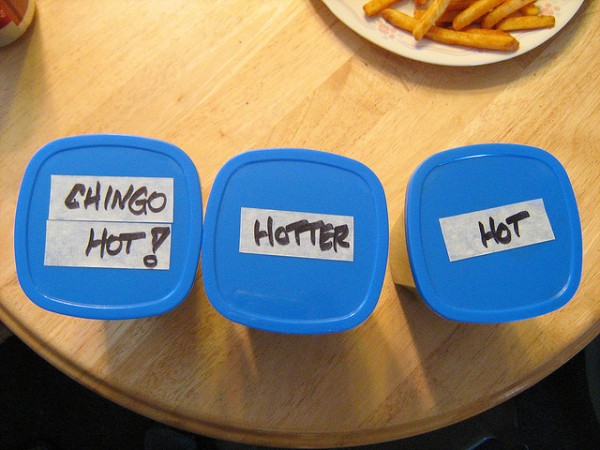When Love Conquers Labels
I.
When I look at them I see smiles and laughter. Sometimes I see jealously and anger. Sometimes I see that they are up to no good. At other times I see something deep in their hearts that I am unable to decipher.
But I always see them. I see past the window dressing of their skin and hair and facial features. I see past physical handicaps and a troubled past.
I see the person that they are. I see the person that they are becoming.
And I love them.
II.
Have you ever had that experience where you have seen something a hundred times, but suddenly and unexpectedly, you see it differently? As if seeing it for the very first time?
Maybe it was a book. Maybe it was a song whose lyrics you understood for the first time. Maybe it was a building or a park.
Maybe it was a person. but you finally saw them, the person inside, instead of only seeing what they look like.
We make judgments based on what we see. I’m not sure we could stop if we wanted to. What we see is a good place to start. It is often our first sense that is stimulated when we experience something or someone new.
But too often we stop there. We see food we don’t like, and so we don’t try it. We see an experience that frightens us, so we we don’t take the first step. We see people that we don’t like how they look, and so we never get to know them.

photo by oddharmonic
III.
Two of my children look different than me. They are Asian, specifically Chinese. And to the Chinese they look different from each other. It amuses us when we are asked if they are brother and sister because they do not look alike to us. They were born in completely different parts of the country.
Each of them has a special need that further makes them different from us. My son has a surgical scar. His difference is hidden by his clothes.
But my daughter has cerebral palsy. Her differences are visible all of the time. When she walks, it is different. When she speaks, it is different. When she eats, it is different. When she runs, it is different.
She couldn’t hide her differences if she wanted.
Right now she doesn’t notice, but one day she will and I bet she will do everything she can to hide them. To avoid being labeled.
IV.
I recently watched a video of two orphans in Ethiopia.
They were brothers and sisters and lost their parents to HIV. A disease that is treatable. Unless you happen to have been born in a country that is too poor to have the medicine available to everyone who needs them.
Now ages 14 and 11 they are orphans. They are alone in a world that has no place for them. A cold, dark, tough world.
The video is an opportunity for you to get to know them. It begins with the boy. He states his name. And then his age. And the person behind the camera asks if he is HIV positive. He states no. His face filled with a hopeful, expectant smile. He believes that somewhere on the other side of this camera is a mom and dad who want him.
And then his sister is asked the same. Her name. Her age. She anxiously smiles as well. And then the other question. Are you HIV positive?
Yes.
And tears fill her eyes. She fights to hold them back. She wants to be pretty. She wants someone to see her and love her. But as she admits that she has this dreaded disease, she realizes that she is different. She is positive. And she is less desirable. She is untouchable. She is unwanted.
Her words are few, but you can feel the question she is asking. Who could ever love me?
V.
We give people labels to try and help us make sense of the world.
Black and white.
Conservative and liberal.
Foreign and native.
Republican and Democrat.
Chrisitian and Buddhist.
Protestant and Catholic.
Gay and straight.
Healthy and special needs.
HIV negative and HIV positive.
Our labels give us a reference to make decisions about who people are without needing to know them. The labels tell us how to interact. They tell us about the differences. They tell us whether or not we believe someone should be a friend or a foe.
But they do not tell us anything about them.
VI.
When I first met my children, they carried many labels. Orphans. Special needs. Chinese. Abandoned.
Now that I have known them for 9 months they only carry one label. My children.
Traveling down this road at some point I have stopped noticing their differences. I have stopped seeing the labels that we used to describe them before we met them.
And now all I see is them.
They are beautiful. They are wonderful. They are full of imagination. They are full of wonder. They possess fears. They are full of dreams.
When I look at them all I see is their heart.
And they are worth whatever it has taken and will take to know them. They are my son and daughter. And I am their father. None of our differences will ever stand between us.
Their labels conquered by love.
You can leave a comment by clicking here.
